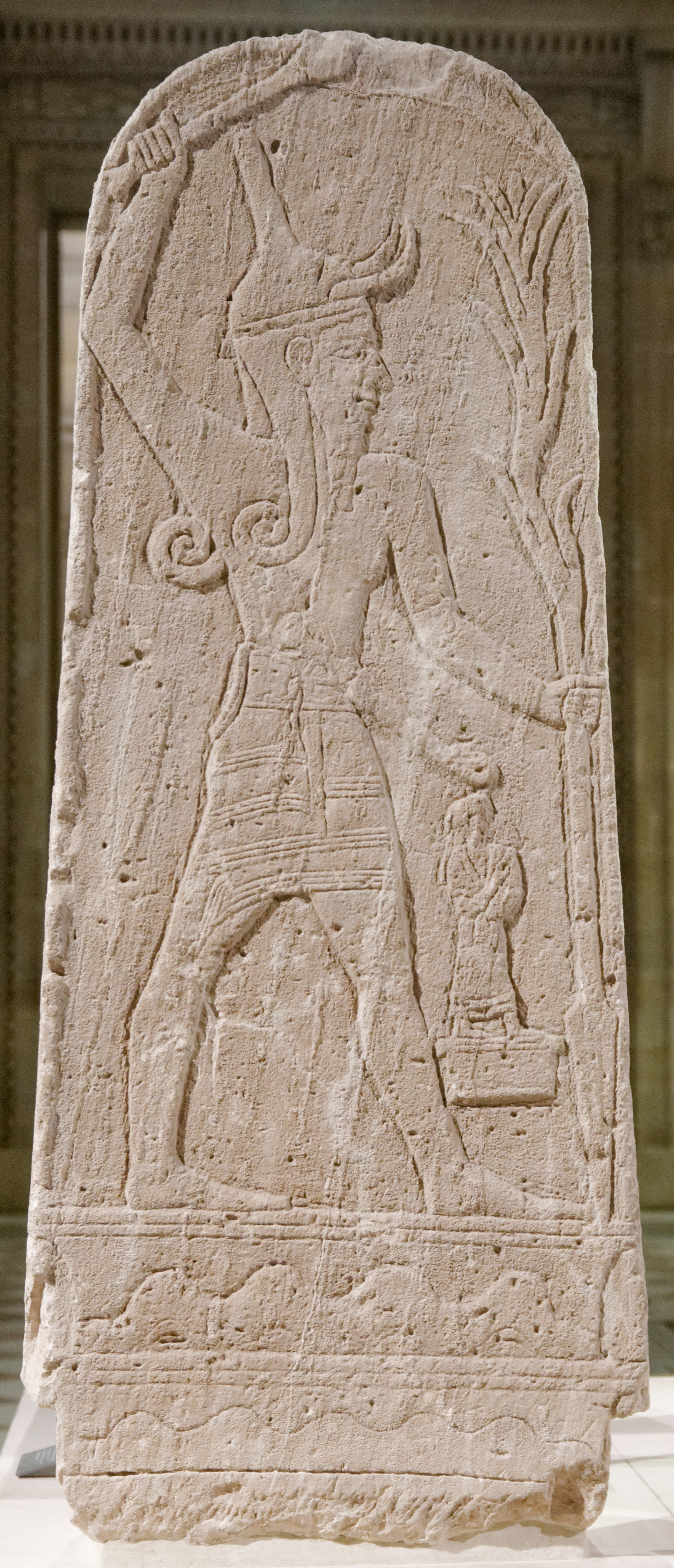Blog
Holiness Versus Reconciliation
Friday, October 25, 2019
Yesterday’s discussion about family withdrawal was notable both for its length and its civility. It certainly made me think a lot about what I had written, and eventually I realized that the back-and-forth was about one underlying theme: the tension between holiness and reconciliation. In our dealings with those who have fallen from grace, should we be more concerned about restoring them or protecting ourselves from temptation?
If we wanted to, we could create a long list of Scriptures arguing both sides of the point. Paul’s incredulous question in 1 Corinthians 5:6, “Do you not know that a little leaven leavens the whole lump?”, appeals to the Corinthians to consider their own holiness. On the other side, Jesus’ declaration in Luke 5:32, “I have not come to call the righteous but sinners to repentance,” certainly affirms His desire to reconcile.
What are we to make of this? Is Jesus’ example not one we are to follow? Is Paul instructing the Corinthians to be un-Jesus-like (not that they needed much help with that)?
I think the answer has to do with the spiritual condition of both Jesus and the Corinthians. In our interactions with anybody, our first concern has to be our own holiness. Worldly people are dangerous; lapsed Christians are even more dangerous. They are on a downward spiritual trajectory, they have a pre-existing relationship with us, and if their sin is not identified, they potentially can corrupt an entire church.
In our dealings with such people, we shouldn’t try to pull them out of the water if they are going to pull us out of the boat instead. This, of course, was the Corinthians’ problem. Instead of condemning sin, they were celebrating it! As a result, Paul counsels them to protect what little holiness they have left by cutting off contact with the sinner.
Jesus’ conduct was very different because His spiritual condition was very different. Rather than shunning covenant-breaking Jews, He sought out the worst covenant-breakers he could. He ate and drank with prostitutes and tax collectors.
However, this doesn’t reflect foolishness on the part of our Lord. It reflects righteousness and love. He knew that those wicked people wouldn’t drag Him down. Instead, He would lift them up. Because His holiness was secure, He could afford to seek reconciliation.
As we make decisions about how we should approach erring brethren, especially erring family members, we must ask ourselves whether our spiritual condition is closer to Corinth or to Christ. This is not an easy question! It is often true that those who are closest to the fallen-away are on spiritually shaky ground themselves. If we lie to ourselves about our own strength and minimize the danger, they will drag us down too. Let him who thinks he stands take heed lest he fall, indeed!
On the other hand, it may be that we have the spiritual maturity we need to follow the example of Jesus. Again, never should we reach this conclusion lightly! Otherwise, like Peter, we may be out of the boat before we figure out we don’t have what it takes.
However, if our faith is strong enough, we may have opportunity to engage in that most praiseworthy of Biblical pursuits: turning back the sinner from the error of his way. Maybe cutting off all social interaction is the best way to accomplish this (and if our holiness is not what it should be, it’s the only tool we have); maybe continued contact and loving admonition is. I’m not here to judge anybody else’s judgment calls. I am certain, though, that we must keep the goal in mind and seek it as best we know how.
Truly, blessed are the peacemakers, but so too are those who suffer loss while they themselves are saved. Let us seek the first, if possible, but let us never forget the second, always bearing in mind the wisdom of Galatians 6:1: “Brothers, if anyone is caught in any transgression, you who are spiritual should restore him in a spirit of gentleness. Keep watch on yourself, lest you too be tempted.”
Is Family Withdrawal a Biblical Practice?
Thursday, October 24, 2019
Over the past several years, I’ve become aware of a practice among brethren that I’ll call, for lack of a better term, family withdrawal. Here’s how it goes: a child of Christian parents falls away, usually in some dramatic fashion. In response, their family, particularly their parents, “withdraws” from them. They won’t eat with them. The erring Christian is no longer welcome at family gatherings. Sometimes, they won’t even talk to them.
This is certainly a severe sanction. As a young man, I would have been devastated if my parents had chosen to shun me like that. However, I do not believe that it is Biblically required, and I am not at all certain that it is even wise.
First, it’s worth noting that all of the passages in the New Testament that concern generic withdrawal, Matthew 18:15-20, 1 Corinthians 5:1-13, and 2 Thessalonians 3:6-15, are addressed to churches. These are texts about how communities of believers are to censure unruly members.
There is no corresponding command given to individuals (I believe that 1 Timothy 6:5b in the KJV is a later addition and does not belong in the text). Just as it is error to presume that anything an individual can do, the church can do, it’s equally erroneous to presume that all individual Christians are granted the powers of the church, and church discipline needs to be left in the hands of the church.
Even in cases where the church does withdraw from an individual, that decision will have different effects on the Christian family members of that individual than it will on anyone else. For instance, the woman of God whose husband is withdrawn from is still responsible for honoring 1 Corinthians 7:1-5, which calls her to the most intimate relationship of all. Indeed, if we read the text strictly, 1 Peter 3:1-6 appears to be addressed specifically to women with out-of-duty husbands. She is to attempt to win him back not by showing disapproval, but by showing love.
It’s appropriate to view other family relationships through a similar lens. Most Christian fathers understand Ephesians 6:4 to be primarily about young children, but secondarily to be about adult children. Certainly, my father continued to instruct me as long as he lived! Is family withdrawal more likely to be recognized as discipline and instruction, or as a provocation to anger?
We need also to consider 2 Thessalonians 3:15. Whatever actions we take as the result of a withdrawal, they need to communicate brotherly love and admonition rather than enmity. This is a particularly powerful instruction in a family context. Natural affection (the absence of which Paul condemns in Romans 1:31) calls families to associate with one another. If I stopped inviting my siblings to my house for the holidays, all who heard of it, even in the world, would assume that we had become enemies.
Of course, in the final analysis, all of us can associate with whomever we please and shun whomever we please. If someone believes that cutting off social interaction is the wisest way to deal with a child who isn’t faithful to the Lord, they can do that. However, that’s far from the only godly way to proceed, and I suspect that it is rarely the best.
Certainly, things cannot continue as they were between any Christian and a family member who turns their back on God, but there’s a lot of distance between that and cutting off most/all contact. In my experience, parents are most successful when they negotiate a middle way between those two extremes. Continued interaction combined with godly admonition seems to be the combination most likely to win an erring child back. Ostracism, on the other hand, rarely convinces anyone.
Acappella Singing and Church Size
Wednesday, October 23, 2019.jpg)
A couple of days ago, I encountered a video of a saxophonist performing a. . . memorable rendition of the hymn “Give Thanks with a Grateful Heart”. At least, that’s what I think he’s playing. I reposted the video with the comment, “The real reason why the Lord only commanded us to sing was to save us from bad church bands. Not totally sure I'm joking.”
In all seriousness, I think there may be some truth to that. I’m not sure that the performer-audience model of worship works well anywhere, but I think it has to work particularly badly in average and smaller-than-average churches.
Across all denominations, the average church size is about 80 in attendance on Sunday morning. If you want to put together a competent church band from the talent base of those 80 attendees, how successful are you going to be? (Note, by the way, that churches of Christ are not a good gauge here. Because of the practice of congregational singing, brethren have much more musical interest and ability than the norm.) I’d guess you’d have a dude who used to play guitar in jazz band in high school, a woman of a certain age who gives piano lessons sometimes, and a girl in her late teens or early twenties who thinks she can sing.
They could make music together, kind of. You wouldn’t necessarily want to be in the same room with it. If, perchance, they turned out to be pretty good, it wouldn’t be long before a larger congregation snapped them up.
I’m not an expert, though I’ve watched some recordings online. I would guess, however, that the attendee of the average church is subjected to bad music on a weekly basis. The spotlight is not kind to people with marginal musical talent.
For churches of that size or smaller, congregational singing is simply going to work better. Once you get people who are willing to sing (which is an American obstacle not generally present elsewhere), an 80-member congregation will be able to do so in an appealing way, even if the singers only have modest musical gifts. The massed voices mask the flaws of any one voice (which, come to think of it, is a lovely metaphor for a church generally). I’ve worshiped with lots of churches all across the country, but I can’t think of a single one where the singing discouraged me.
This is true not only for the average church, but even for the small one. When I still lived in Illinois, I would preach once a month for the church up the road. I believe the congregation has grown since, but back when I visited on Sunday evening, attendance would be in the teens.
Trying to get a band together from those brethren would have been a disaster, but you know what? They could still make congregational singing work. I didn’t dread singing with them. I enjoyed it.
I think this illustrates the wisdom of God’s commandment to sing. Acappella congregational singing scales pretty well. Maybe it doesn’t compare to a Hillsong extravaganza, but singing “Our God, He Is Alive” with 1100 people has some power to it.
However, it’s most important not for larger churches, but for smaller churches. Even in the absence of standout musical talents (which usually aren’t going to be present in smaller congregations), congregational singing works. It works here, it works in Africa (again, haven’t been, but have seen the YouTube videos), and I’d imagine it worked 2000 years ago. Like everything about God’s plan for the church, it is suited to all places and times.
If you find yourself taking that for granted, go back and listen to the video at the top until you don’t.
Strangers and Exiles
Tuesday, October 22, 2019
For the past several years, one of the most hotly discussed political topics in our country has been the subject of immigration. In America today, there are millions of people who, rather than being citizens of the United States, are citizens of somewhere else. Even though according to the laws of the United States, they do not belong here, they have come here anyway, and many of them live for years or even decades in a country that is not their own.
I’m not up here to weigh in on that political debate. Instead, I want us to remember that, even though they have been overlooked by both political parties, there is at least one other group of people living in the United States that doesn’t belong here either. I refer, of course, to Christians. Even if we were born and raised in the U-S-of-A, our citizenship is still in heaven, not here, and if we want to go there, we’d better put that heavenly citizenship first!
This always have been true of the people of God. The Hebrews writer captures this idea beautifully in Hebrews 11:13-16. Let’s spend the next few minutes unpacking this text, learning what it means for us to be strangers and exiles on the earth.
First, it means that WE SEE AND GREET THE PROMISES. Our example here is Abraham and the patriarchs. God gave them the land promise, the nation promise, and the seed promise, but all of them died before those promises were fulfilled. Even though they would never see those fulfillments on earth, they looked toward them and welcomed them.
So too it must be for us. God has made us many promises, but the greatest of them, the promise of eternal life, is something that none of us will see on earth either. Nonetheless, if we want to walk in the footsteps of Abraham, we too must welcome this promise. We have to look forward to it. We have to greet it.
The only way for us to do that is through the word. I’ve found that the older I get, the more the promise of heaven means to me. We need to turn to the Scriptures constantly to reaffirm our trust and joy in that promise. Every time we read about eternal life, we need to say, “That promise is about me,” and we need to remember the promise through every moment of our lives. Let’s be sure that our eyes never turn anywhere else!
Second, if we are truly strangers and exiles, it means that WE SEEK A HOMELAND. It’s hard not to have a homeland. I think some of the most pathetic people on earth are refugees. There’s been a war or a famine that has driven them from their homes, and so they’re living in a squalid refugee camp someplace else, counting the hours until they can go to where they belong.
That’s supposed to be us too. We often sing, “This world is not my home,” but sadly, there are many Christians who are acting awfully comfortable in the refugee camp! Our priorities tell us where our true homeland is. Let’s think about the way we spend our money, our time, and our energy. Would somebody who watched us for several weeks conclude that we were striving with all our might for heaven, or would they say that our hope was set on the things of earth? Refugees are not content. Refugees do not behave like they plan to stay indefinitely. If that’s how we’re acting, maybe our citizenship isn’t where we think it is!
Third, if we’re strangers and exiles, WE DON’T LOOK BACK. Here, let’s pay attention to the language of Hebrews 11:15. The Hebrews writer doesn’t say of Abraham and the rest that they didn’t go back to the land they came from. Instead, he says that they didn’t think of the land they came from. This isn’t a passage about action. This is a passage about the heart.
Let’s consider ourselves here. We’re all here assembled in the Lord’s name. Presumably, that means that we haven’t turned our back on Him and returned to Satan’s country, the dominion of darkness that we came out of.
However, our hearts are another subject altogether. Are we here because we think we have to be here, or are we here because we want to be here? Do we hate our former sins, or do we long for them because we miss them terribly? Are we pressing on toward Canaan, or are we looking back over our shoulders at the pleasures of Egypt?
If the latter, we need to pay attention to the writer’s warning. He notes that if the patriarchs had wanted to go back, they would have had opportunity to go back. So too for us. Sometimes we sing, “I know the Lord will make a way for me,” but I am confident that if our hearts love sin, the devil will make a way for us too. People who want to go back will get the chance. Only if our hearts are right will we inherit the promises.
If that’s the way we live, though, the Hebrews writer says it will have two important consequences. The first is that WE HAVE GOD FOR OUR GOD. Specifically, the text says that God is not ashamed to be called their God. That’s an idea that we could stand to think more about. There is one way that we can live that will make God proud of us, that will make Him happy to claim us as His own on the day of judgment. On the other hand, there’s another way that we might live that will make God ashamed of us. He will look at our disgraceful actions and say, “No, I don’t know who they are. They don’t belong to Me.”
We might think that a Christian would have to behave pretty badly to make God ashamed of them, but in reality, the shame-causing activities are the things that we just got through studying. If we don’t see and welcome His promises, God will be ashamed of us. If we take earth for our home instead of seeking heaven for our home, God will be ashamed of us. If we constantly think of the sinful life we left behind, God will be ashamed of us, and wouldn’t that be an awful thought? Obviously, the personal consequences are terrible, but even beyond that, God has given me so much. I don’t ever want to be somebody who makes Him feel embarrassed and ashamed!
Finally, if we are strangers and exiles on the earth, WE HAVE A CITY PREPARED FOR US. First of all, note that this is the ultimate evidence that God approves of us. Rest assured that nobody He is ashamed of is going to dwell in His presence for eternity! Instead, we will be there to glorify Him, which shows His conviction that we do, in fact, glorify Him.
Second, the preparations that God and Jesus make show us that we don’t have to fear disappointment. You know, if we spend our lives seeking the things above instead of the things on the earth, but there actually is nothing waiting for us above, that would stink! In Paul’s words, we would be of all men most to be pitied.
However, we don’t have to worry about that. We have reason to believe that God is, and if God is, God is faithful. If God is faithful, when He tells us that we have a city prepared for us, we can trust Him. Whatever we go through here to get there, it will be worth it!
Summaries, Psalms 112-116
Monday, October 21, 2019
Psalm 112 examines the blessings that come to the righteous. This looks like a psalm with three verses and a coda, with the end of each verse being the “forever” statements of vs. 3, 6, and 9. Each verse explores different aspects of the blessedness of the righteous. V. 1 is about offspring and wealth, v. 2 is about enlightenment, generosity, and justice, and v. 3 is about confidence reflected in generosity. By contrast, the coda describes the envy and ultimate failure of the wicked.
Psalm 113 is a call to praise God. It defines His praise in terms of who (His servants), how long (forever), and where (from the rising to the setting of the sun). The remainder of the psalm explains why this praise is justified. God is great and lofty, and He uses His power to bless those who are in need.
Psalm 114 is a snapshot of God’s care for His people during the Exodus. It observes that He went with His people as they left Egypt. He showed His dominion over creation by parting the sea and the Jordan, and by making the mountains quake. The psalmist then sarcastically asks all of the above why they’re running away and jumping up and down. Because of this, he calls all the earth to tremble before God, who is so powerful that He can even turn rock to water.
Psalm 115 contrasts the power of God with the powerlessness of idols. It opens with an appeal to God to glorify Himself, not His worshipers. The psalmist then marvel at the nations, who don’t know where their god is or what he is doing, with the psalmist’s own certainty of God’s dwelling place and omnipotence (the second half of v. 3, “He does whatever He pleases,” is the Biblical definition of omnipotence).
The psalm then points out how helpless idols are by comparison. Even though they have human features, their abilities don’t even measure up to the abilities of people. As a result, those who trust them will become like them—dead and helpless. The psalm concludes by inviting Israel to trust God. He has helped them before, He is sure to bless all who trust Him, and He is mindful to preserve those who praise Him on earth, both by giving them children and by protecting them.
Psalm 116 rejoices in God’s help. It notes that He heard when the psalmist cried out to Him, even though he was at death’s door. He did so because of the grace and mercy that are part of His nature. The psalmist’s soul is able to rest because of how completely God protects him. Mankind might not be trustworthy, but God is. The psalmist then promises to praise God and pay his vows to Him. Because God’s holy ones are precious to Him, He protects them from death, which allows His servants to continue to worship Him.


